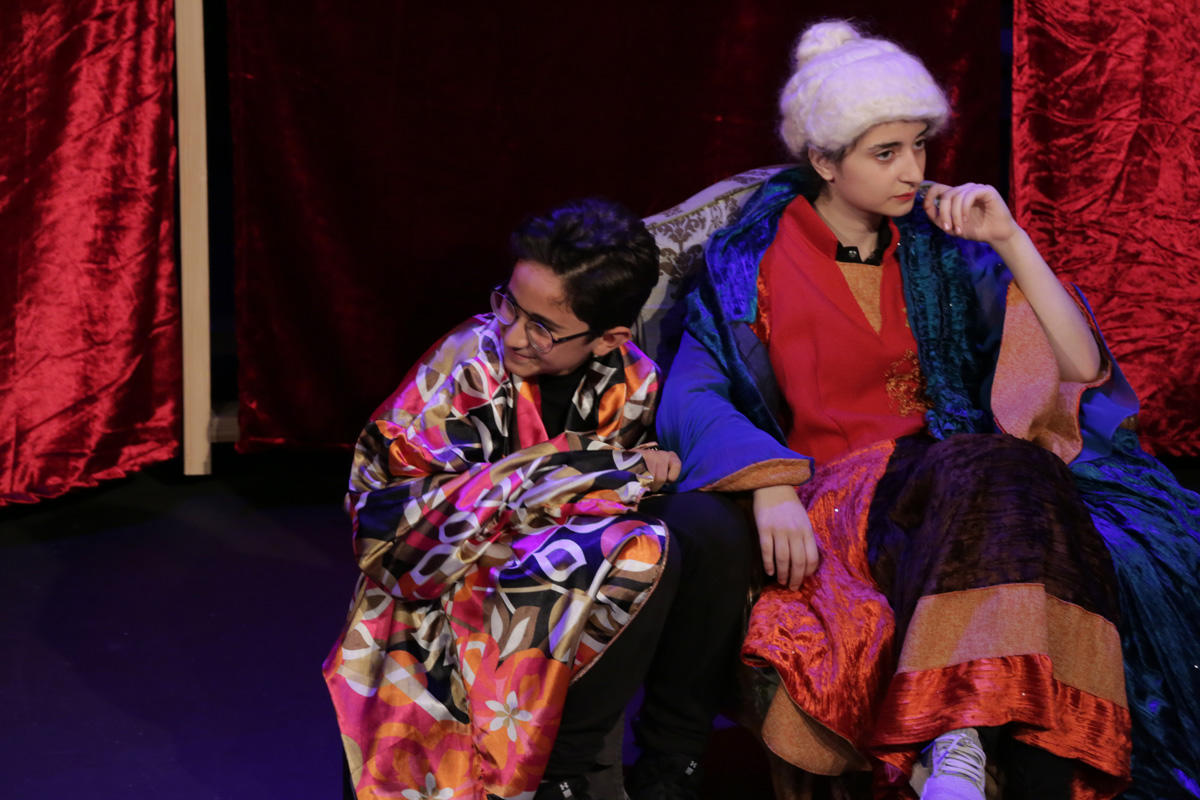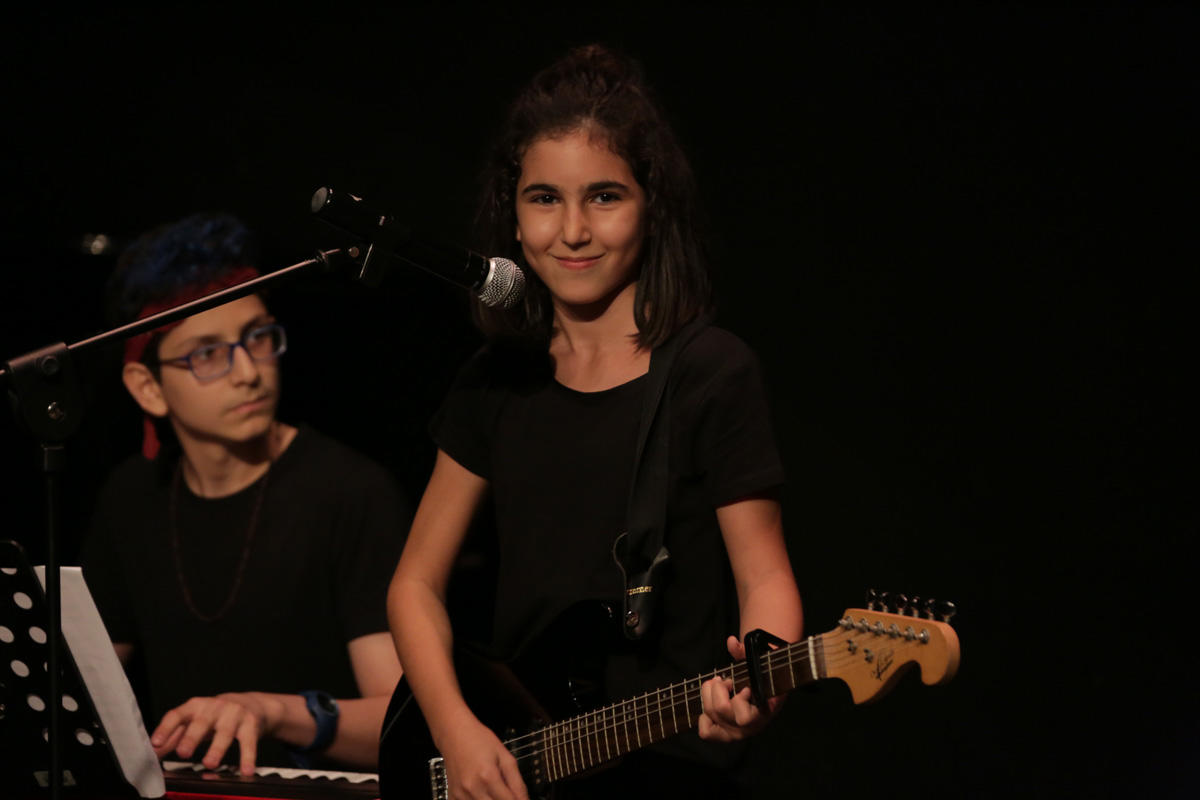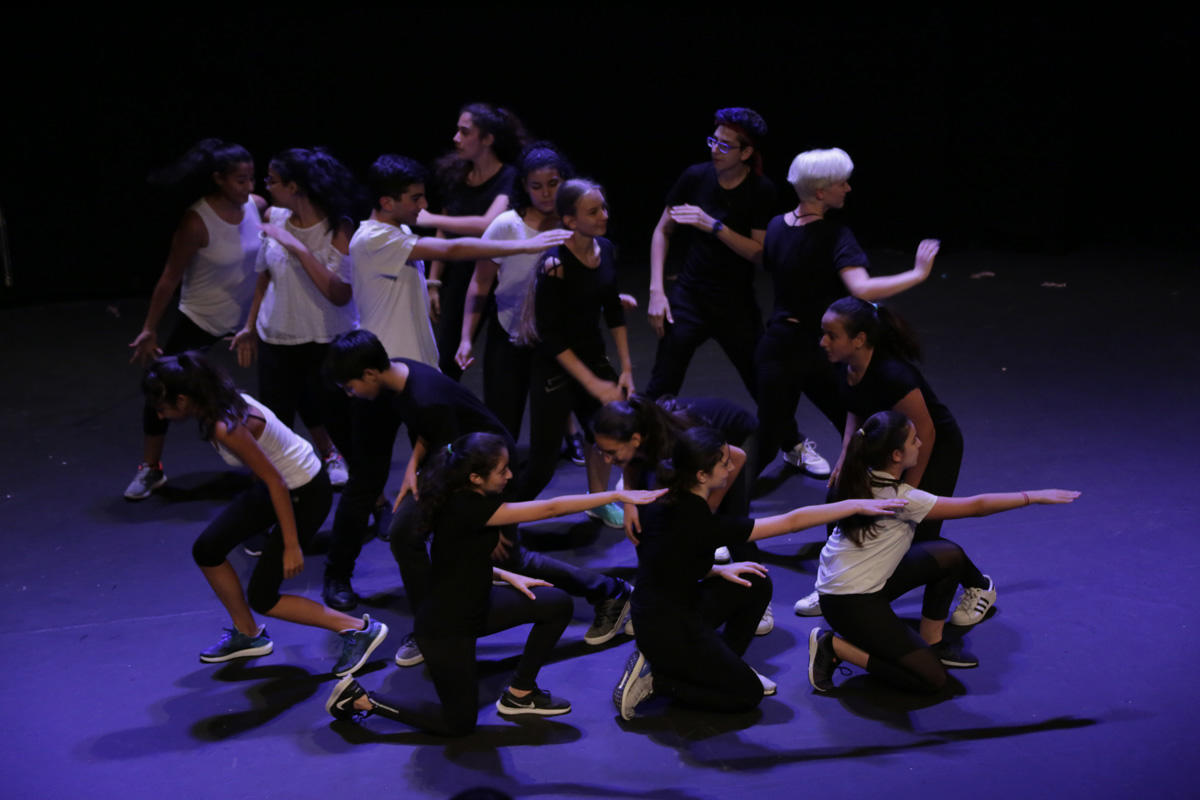IMAGINE, a Fantastic Summer Camp
IMAGINE’s second-annual Summer Arts Camp wraps up with a full-length musical.
I Have a Dream, Thank You for the Music, Havana – to the tune of these songs, 32 teenagers wrapped up IMAGINE’s second-annual Summer Arts Camp with a full-length performance at LAU’s Gulbenkian Theater in Beirut. The young singers, actors and dancers charmed the audience with a musical production they had been practicing the previous three weeks of camp.
The IMAGINE Summer Arts Camp – open to 12 to 17 year-olds from across Lebanon – mirrors the School of Arts and Sciences’ Performing Arts Program, but “on a smaller scale for younger kids,” said camp founder and director, Assistant Professor of Music Dr. Amr Selim.
The interdisciplinary nature of the program is at the core of the camp’s philosophy. Campers are taught a number of areas of performing arts and choose an emphasis in music, dance or theater.
“We want the kids not only to understand the value of each art individually, but also the value of adding them and using elements from one and another,” Selim said.
For the end-of-camp performance on August 3, the campers presented a musical play based on Cinderella but with a modern twist. The horse-drawn carriage was replaced by an Uber ride and the glass slipper was a mobile phone. The production ended with Beyonce’s Put a Ring on It, much to the audience’s amusement.
Television and Film Instructor Omar Moujaes, who taught acting, said the production was a great challenge because the students had to work together to “produce a single play with one storyline.”
“This was immensely difficult, as they needed to learn sequences, dances, songs, along with dialogue and proper characterization,” he said, adding, “They were challenged to express themselves through a variety of emotions and taught how to respect one another and work as a team.”
Assistant Professor of Dance & Associate Chair of the Department of Communication Arts Dr. Nadra Assaf, who taught dance classes with LAU Instructor of Dance Sarah Fadel, said the main objective behind the classes was to “raise the bar of body awareness. Based on the exit interview we had with the dancers, I think we achieved our goal.”
She complimented the participants on their high caliber. “They amazed us all with their ability to learn, retain and perform material so quickly.”
For 14-year-old Leya Hamza, who chose an emphasis in dance, the summer camp was a medium through which “you can choose whoever you want to be and you can be that person.”
The camp also offered classes for those interested in rock music. In addition, Adjunct Assistant Professor of Music Dr. Seba Ali gave classes in chamber music, training two violinists, a vocalist and a pianist.
Rock enthusiast Sami Khudr, 14, who lives most of the year in Saudi Arabia, said the band was “a way to communicate with each other, and to express your feelings and your emotions through music, through old songs that are sometimes very popular and sometimes new to your ears.”
Classes were interspersed with daily workshops focusing on a different theme each week, in order to expose the campers to an even wider range of subjects.
The first week was about creative storytelling, and campers were given workshops in clowning, poetry and songwriting. The second theme was filmmaking, which culminated in the students creating a film shot and edited solely by mobile phone. The third workshop focused on fashion design.
Selim underlined that with each session, the camp aims to create a competition-free and supportive learning environment for the students.
“Our motto here is that it is all about the [learning] process not the product. There is always that competition that puts so much pressure on the kid, and doesn’t let them learn,” he said.
At the end of the camp, the Department of Communication Arts offered five individual LAU scholarships ranging from 15 to 30 percent of tuition for the soon-to-be college students. The scholarships were given to the “most improved students, not the students who came to us and were already the best,” said Selim.


